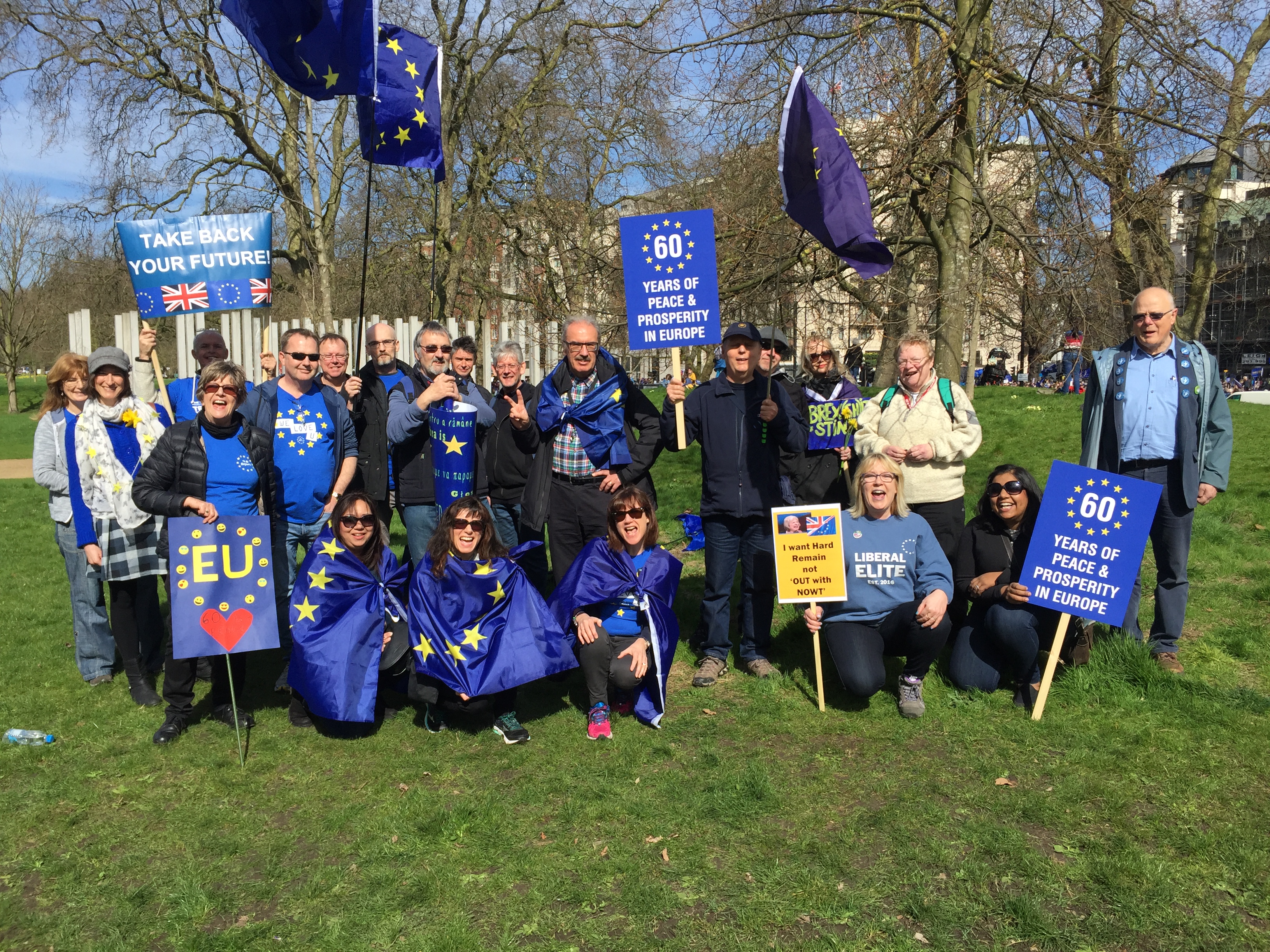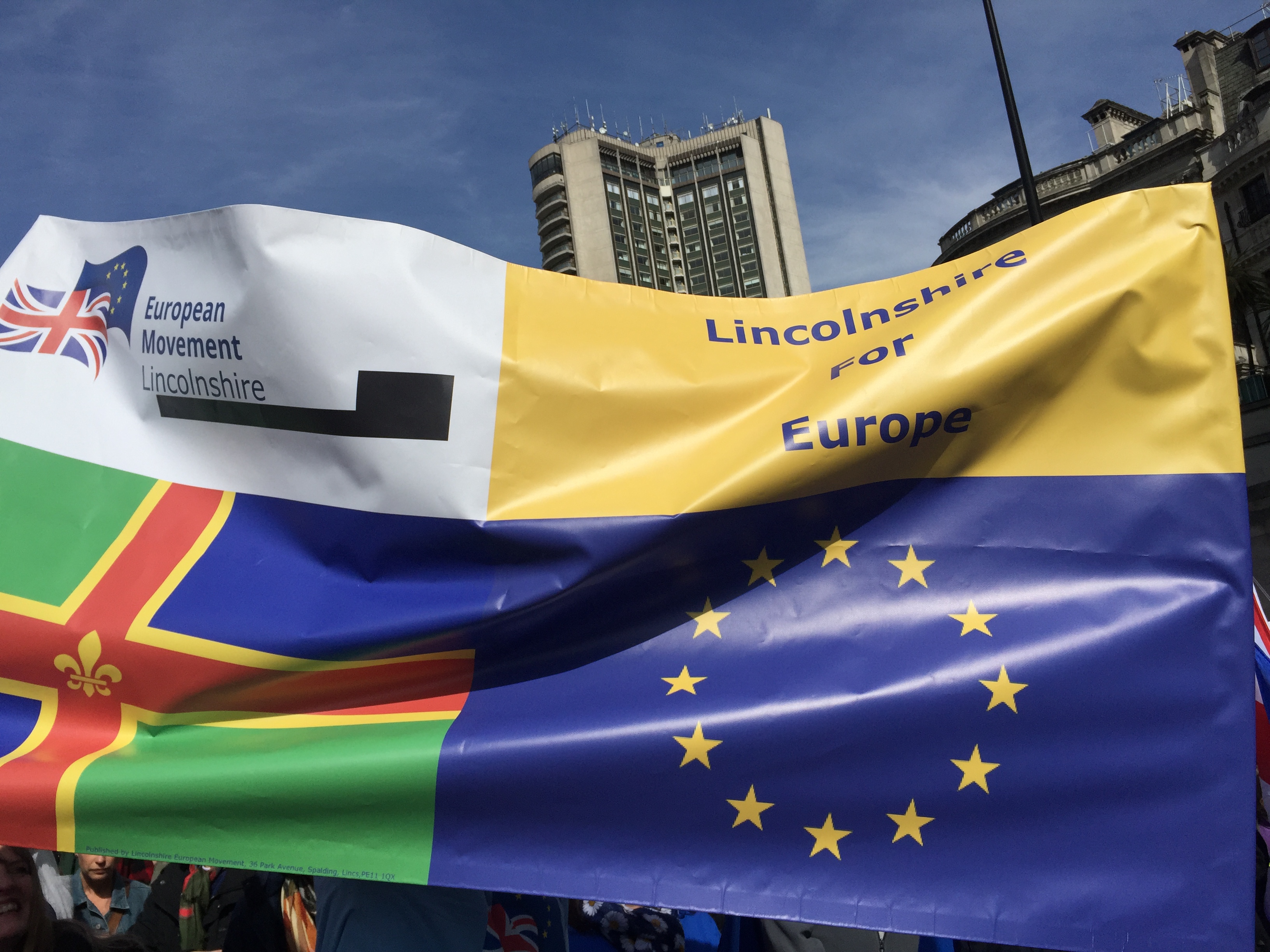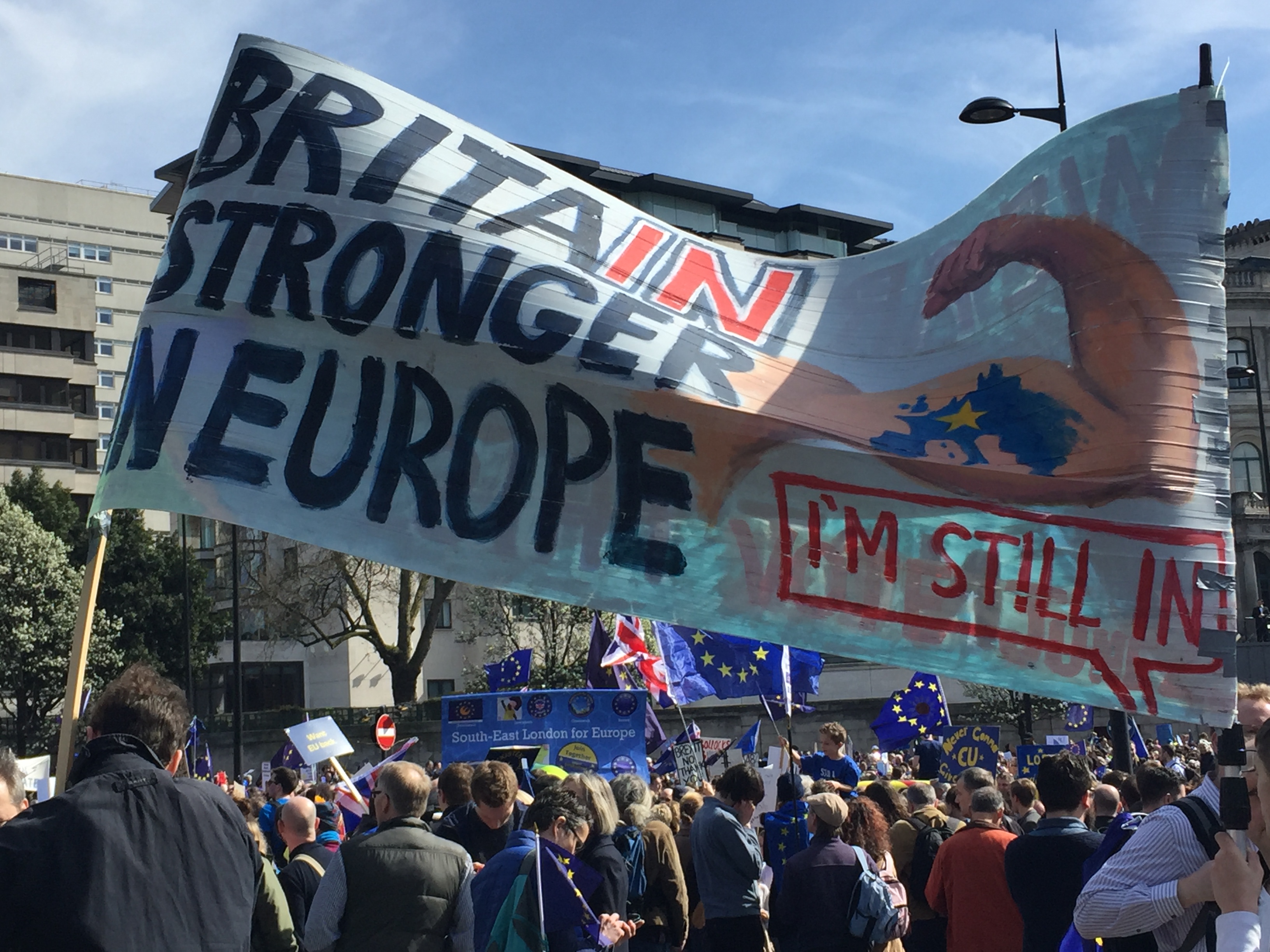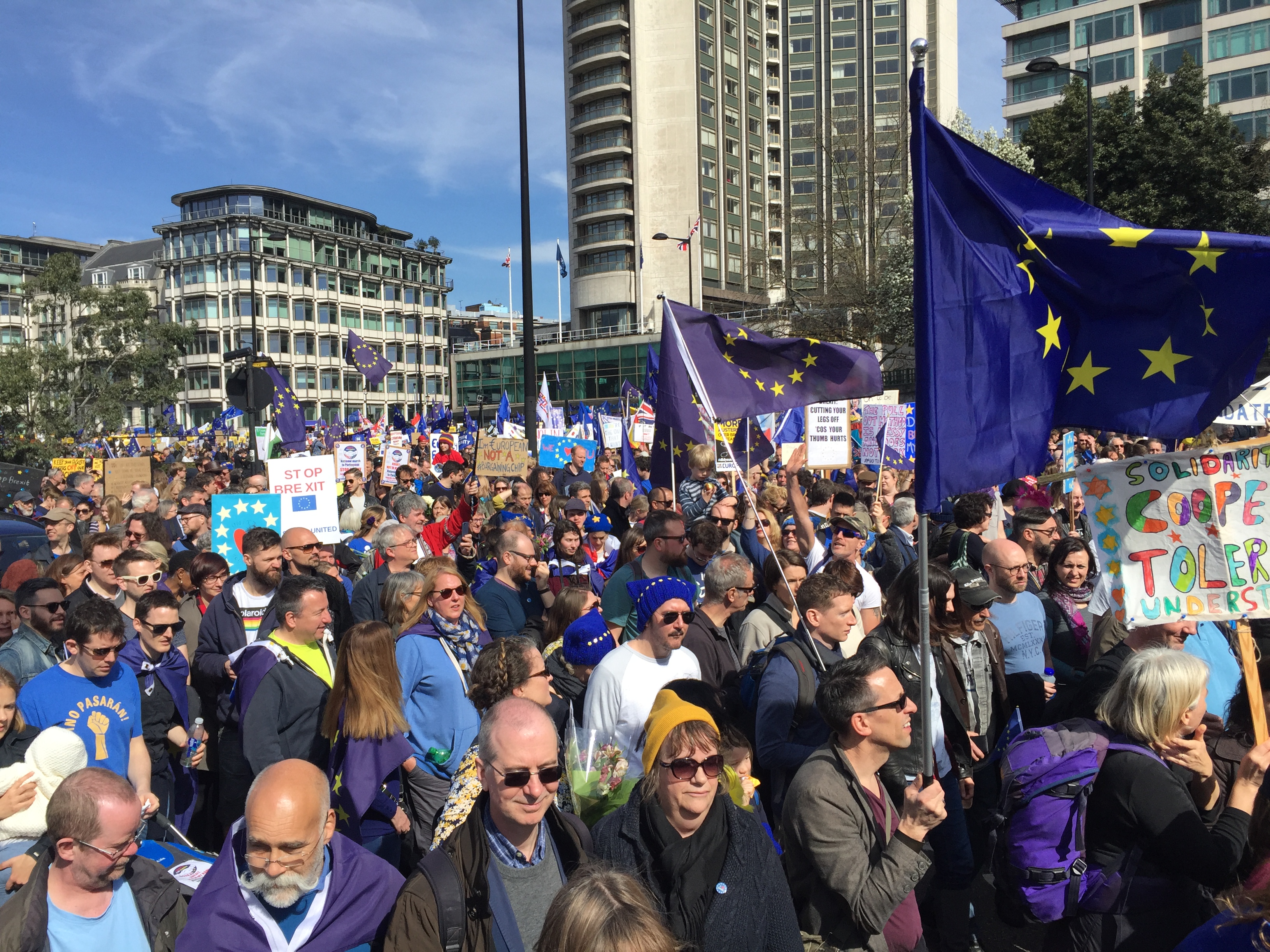“Britons were wrong about nearly every EU policy as well as on their beliefs about EU membership.”
On 25 March 1957, the Treaty of Rome was signed by the nations of Europe. Through this, the conception of the European Union was born. The festivities of the 60th anniversary have led Europe’s leadership to travel to Rome, where they celebrated years of trial, success and, as the European Council’s President Donald Tusk and MEP Guy Verhofstadt have said, of reform and rejuvenation.
Theresa May has declined to attend the festivities, moving herself away from the continent to focus on Brexit negotiations.
The Article 50 enactment was given a belated start date of 29 March due to delays in the Bill’s pass through parliament. The apprehensions of many are given voice by politicians, including opposition leaders.
On 25 March 2017, London’s Park Lane found itself swelling with attendants from across the UK, as well as expatriate Britons from overseas, making their voices heard – all coming together as a whole to “Unite for Europe”.
The organisation’s success is measured not only in the initial crowdfunding campaign, but also on the sheer scale of the event, boasting over 100,000 attendees.
The Official Statement by Unite for Europe is divided into six points: it is not okay to ignore us, it is not okay to incite hate and divide communities, it is not okay to fail to protect EU nationals who work and pay taxes in the UK, it is not okay for a handful of people to decide the future of many behind closed doors, it is not okay to lie and put futures at risk for political gain, and it is not okay for the old to decide the future of the young.It aims to assure the desire for an open conversation where UK’s civil society is consulted, and where parliament and the people have the final say.
The news circulating have been a mixture of political decline, terror, and derisive commentary. But with this wave of uncertainty and concern, come those hopeful of a better future and an optimistic survey of tomorrow.
What leaving the EU means and represents is not lost on the attendants, speakers and organisers; each knowing well the impact on themselves, their friends and families. The anxiety is palpable to attendants, who each stand to have their lives impacted by Brexit.
The speakers of the day are a mix of Liberal Democrat, pro-EU Labour, Green Party and Scottish National Party participants, as well as lecturers, economists and MEPs.
Along with these speakers are also founders of local pro-EU communities, which hope to give a platform to those who feel wronged and victimised for expressing their democratic opinion.
Dr. Rob Davidson, data scientist and co-founder of the anti-Brexit campaigns Healthier IN the EU and Scientists for EU, told the IPF: “The referendum has shown that many people were motivated by the effects of other situations going on at the time, including the global financial recession, which had been going on for years along with austerity policies and led people to wanting to fight the establishment, change the policies and bring back the money to their local areas.
“There was a poll conducted in 2015 which showed Britons were the least knowledgeable about the functions of the EU and then another was done very close to the referendum vote, which showed that Britons were wrong about nearly every EU policy as well as on their beliefs about EU membership.”
According to Davidson, UK finance minister Liam Fox admitted that he had lied about post-Brexit trade possibilities because the British people needed some good news. He added:
“The fact that these politicians can lie without consequence to me is terrifying.”
The march was also attended by politicians and academics. [Image credit: James McQuillan]
He also noted people tend to forget that Britain, just like any other EU member, had veto power on any countries wanting to join the EU. “It was entirely in Britain’s control. If people ever worried about Turkey joining, we could have enforced that.”
Davidson claimed that Leave.eu, a pro-Brexit campaign remaining active during the negotiations period, sent out leaflets containing a map with Turkey, Iraq and Syria painted in red to scare people. He commented:
“They might as well have said ‘all Muslims are terrorists, and they will let them join’, and it is simply a terrible conduct in a referendum campaign to scaremonger like that.”
According to Kelly-Marie Blundell, the Liberal Democrat parliamentary candidate for Lewes constituency, EU investments into protecting British citizens’ health is overseen when hard “Brexiteers” push their view that Europe has no benefit for the UK.
“We are seeing real risks to our country’s security and a significant clampdown on the borders,” Blundell said.
“It feels like we are rolling back 30 years in time to what is ultimately a xenophobic, anti-goodwill, anti-neighbour country that I do not like the idea of going back to.”
According to Blundell, Brexit also poses a real risk of a break-up of the union, particularly considering the First Minister of Scotland Nicola Sturgeon’s desire for another Scottish referendum, and the possibility that Northern Ireland could unite with the Republic of Ireland.
She added that when you start looking at the breakdowns of trade internationally, uncovering what we would charge in import tax and export tariffs starts to look like “a mammoth task”.
“It just seems like madness to me that we are even considering leaving the EU simply due to the benefits it has on trade and [given that] this will significantly affect our relationships with countries outside the EU as well.
“The symbolism behind having tolls for visas to get on a ferry to France does not bode well either.”






